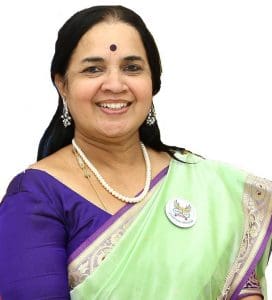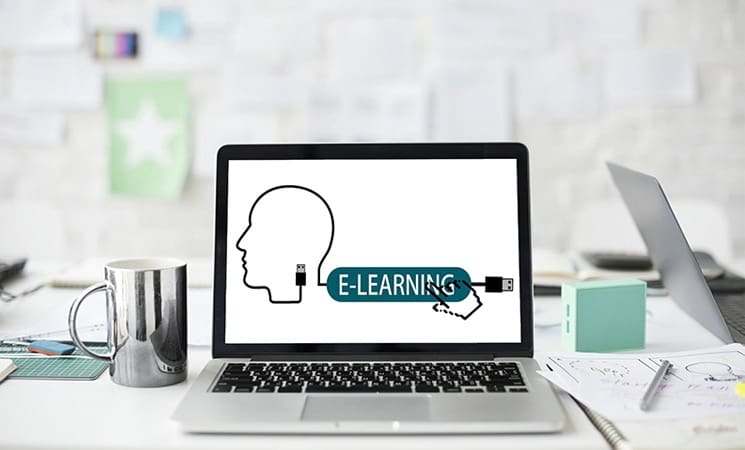Meenakshi Ramesh
Director, Curriculum, Research and Development
VELS Group of Schools
Chennai, India

I am forced to start expressing my views on transforming the culture of Assessment with the word “PANDEMIC”?!
The online learning paradigm shift has set in a new approach to undertake teaching – learning not only with the right technology but also through the right technology.
With so many virtual learning platforms available to embark on online teaching, with the right planning, online active learning techniques, one can create opportunities to foster skilled habits including confidence, reflection, empathy and creativity.
With the inputs from the New National Education Policy and the prevailing remote online learning, to gather evidences on the achievement of learning outcomes by the learners, Assessments need to be ongoing both formally and informally and can be interspersed with online teaching.
The ongoing assessments “FOR” learning and “OF” learning should
- Use appropriate assessment techniques to collect data on student knowledge and skills.
- Analyse the gathered data to arrive at individual student needs and appropriate reporting of the progress made to the stakeholders
- Finally through reflection (critical)the teacher evaluates the acquisition of Knowledge, Skills,and understanding and if need be should replan the entire teaching-learning model. (Kolb’s Cycle)
Assessments can also be done to evaluate the learning on how to
- Avoid common assessment pitfalls
- Diagnose to check prior knowledge and understanding as the session is on
- Make grading manageable and effective
According to the new NEP , inorder to continuously track the learning outcomes of each child, when it comes to the virtual teaching, there are many options to help students and teachers to evaluate incremental progress.
Both Formative and Summative assessments need to focus on core concepts, higher order and fundamental skills. (Blooms Taxonomy)
- Attempts need to be made to use AI based software to help track progress of students and thus guiding students to make optional career choices.
- Self- assessment and peer – assessment to be understood and implemented.
- Effective timely feedback needs to be given to the students to instill Meta cognitive skills among students.
Assessments “AS” learning is also equally important. Here there is a focus on helping students to “think on how to think”. This helps students to monitor and reflect on their own learning.
Nine questions for students to develop meta cognitive thinking
(adapted from innerdrive2017)
Before the Task:-
- Is this similar to previous task?
- Can I describe in my own words.
- What success in this task will look like?
- Where is the best place to start?
During the task :-
- Am I on the right track?
- What can I do differently if I’m not?
- Who can I ask for help ?( one strategy : see two classmates before approaching the teacher for help)
After the task :-
- What worked well?
- What could I have done better?
- Can I apply or connect this to other situations and learning contexts?
With the setting up of the National Testing Agency ( NTA) and National Assessment Center to offer high quality common aptitude test, teachers can try out some of the following Formative and Summative assessments using different digital tools and apps!
Formative :
- Weekly quizzes
- In – class polls and discussions
- Minute papers
- Home work assignments
- Student surveys
- Projects with peer review
- Case studies
Summative:
- Mid- term or final exams
- Essays
- Reports
- Project
- Portfolio reviews
- Presentations
- Poster sessions
Going beyond Multiple Choice:-
- Open book exams
- Asynchronous assignments
- Culminating Summative Projects
- Epic finales
- Group projects
- Remote proctored tests
Whatever be the mode of teaching -learning Bloom’s Taxonomy is one of the most useful tools to assign valid assessments techniques either with or through technology.


